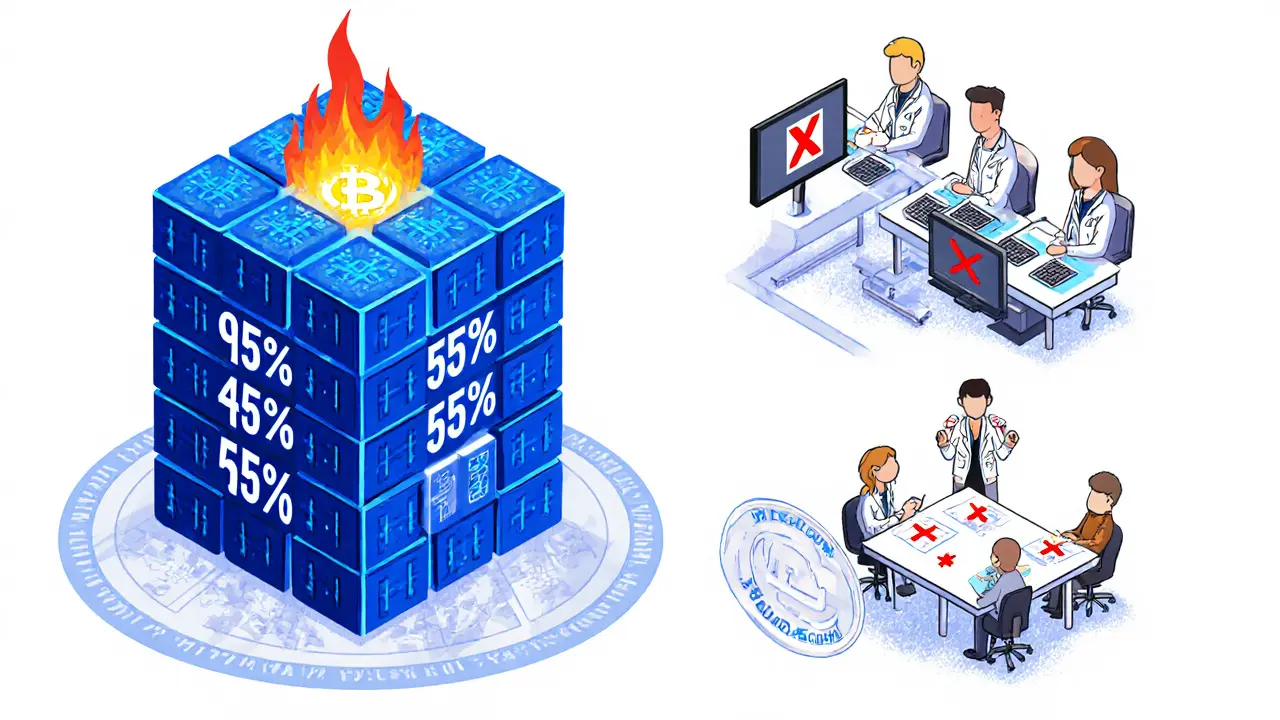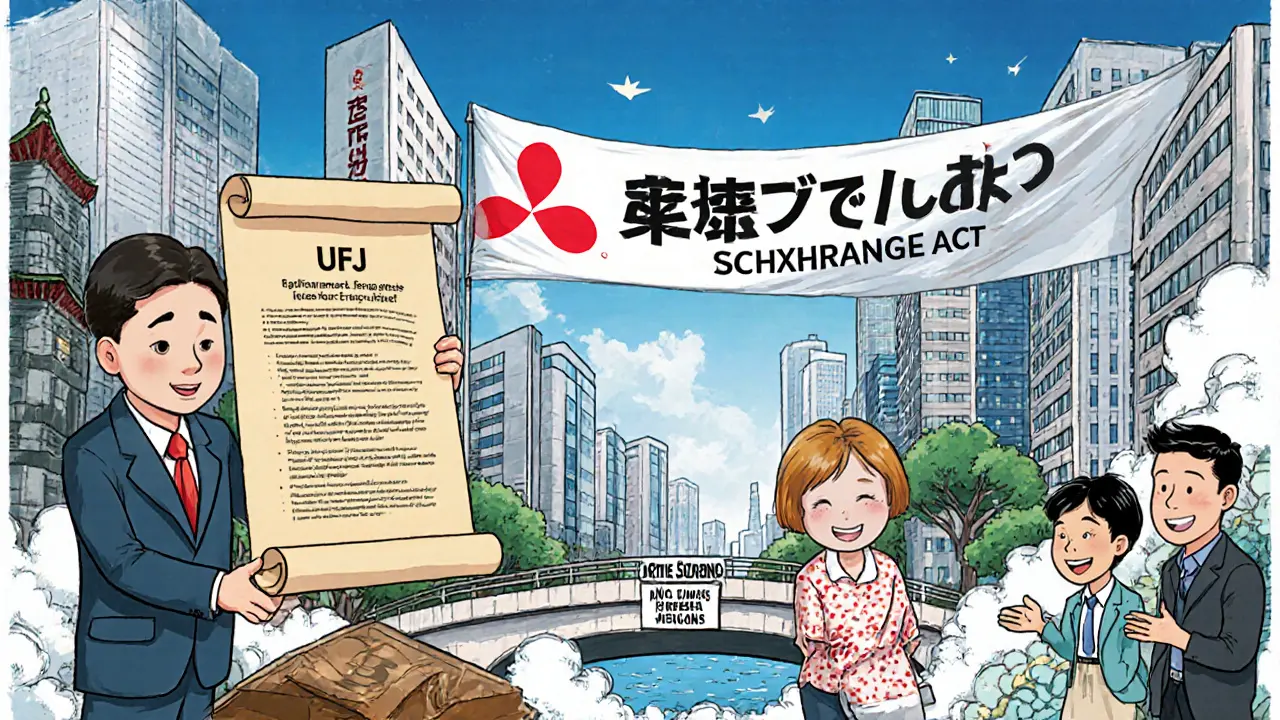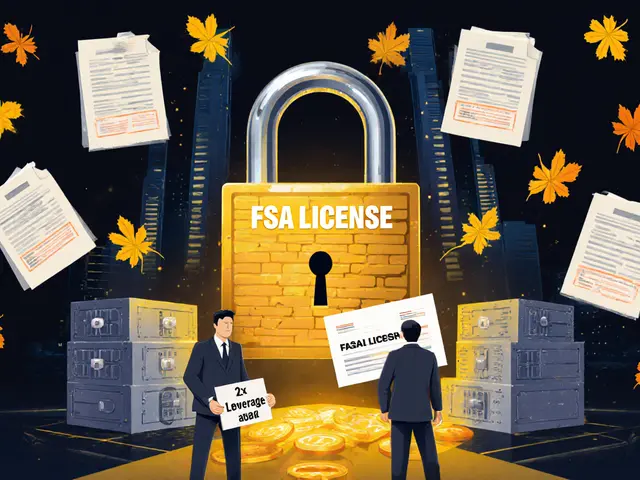Japan Crypto Exchange Compliance Cost Calculator
Estimate Your Compliance Costs
Based on Japan's 2025 regulations, calculate the estimated total cost to license a crypto exchange. The FSA requires strict capital requirements and comprehensive compliance processes.
Estimated Compliance Costs
Enter your details above to see your estimated compliance costs.
According to the article: "One exchange in Osaka spent 22 months and $920,000 just to get approved." Japan requires 10 million yen ($68,000 USD) in capital plus positive net assets, and 95% of customer funds must be in cold wallets after the 2018 Coincheck hack.
Japan doesn't just regulate cryptocurrency exchanges-it redefines what responsible crypto trading looks like. While other countries wrestle with unclear rules or slow enforcement, Japan has built one of the most detailed, strict, and effective crypto licensing systems in the world. And as of September 2025, it just got even tougher.
Why Japan’s Crypto Rules Are Different
Japan was one of the first countries to treat cryptocurrency as legal property, not just a commodity or currency. Back in 2017, the Payment Services Act (PSA) gave virtual currencies official status. That move didn’t just make crypto legal-it made exchanges accountable. Today, every crypto platform serving Japanese users must be registered with the Financial Services Agency (FSA). No exceptions. No gray areas.That’s not just bureaucracy. It’s a survival filter. Since 2017, 17 exchanges have lost their licenses for failing to meet standards. That’s more than a third of the original applicants. The FSA doesn’t just check paperwork-they audit systems, test security, and watch how exchanges handle customer funds. If you’re not ready to spend over half a million dollars and two years on compliance, you won’t get in.
The Core Requirements: No Shortcuts
Getting licensed isn’t about filling out forms. It’s about proving you can operate like a bank-without being a bank.- You must be a kabushiki-kaisha-a Japanese joint-stock company-with a physical office and a resident manager who takes personal legal responsibility.
- You need at least 10 million yen (about $68,000 USD) in capital, plus positive net assets. That’s not a suggestion. It’s a hard line.
- Ninety-five percent of customer funds must be stored in cold wallets. This rule came after the $534 million Coincheck hack in 2018. Since then, no licensed exchange has lost user funds to a breach.
- DDoS protection must handle attacks over 1 terabit per second. Multi-signature wallets? Mandatory. 24/7 monitoring? Non-negotiable. Response teams must be ready within 15 minutes of any alert.
These aren’t guidelines. They’re survival requirements. One exchange in Osaka spent 22 months and $920,000 just to get approved. They hired compliance officers with FSA experience, rewrote their entire AML system, and ran six months of simulated trades before the FSA even considered them.
The JVCEA: Japan’s Secret Weapon
The FSA sets the floor. The Japan Virtual Currency Exchange Association (JVCEA) sets the ceiling.Eighteen of the 21 licensed exchanges belong to JVCEA. That’s not optional-it’s strategic. JVCEA doesn’t just recommend best practices. It blocks bad tokens before they even reach users.
In Q2 2025, JVCEA’s 17-member Token Listing Committee reviewed 147 new token applications. Only 41 got approved. That’s a 72% rejection rate. They don’t care if a token is trending on Twitter. They demand:
- Full smart contract audits from Japanese-certified firms like NCC Group
- Whitepapers with real technical detail, not marketing fluff
- Plans to prevent market manipulation, including limits on whale wallets
In April 2025, they froze all new token listings for 30 days after spotting a spike in meme coin pump-and-dump schemes. That’s control. That’s responsibility. Compare that to Singapore, where exchanges self-certify listings, or the U.S., where the SEC and CFTC argue over jurisdiction. Japan doesn’t wait for chaos to happen-it stops it before it starts.

What You Can’t Do (And Why It Matters)
Japan’s rules aren’t just about safety-they’re about limiting risk. That means restrictions that seem harsh to traders but protect everyday users.- No leverage above 2x. In 2023, Japan slashed margin trading from 4x to 2x. Why? Because retail traders were getting wiped out. CryptoCompare estimates this caused a 15% drop in active day traders. But it also cut losses by nearly 40%.
- No unapproved tokens. If a token isn’t on JVCEA’s list, you can’t trade it-even if it’s on Binance or Coinbase. This keeps users away from scams and unstable projects.
- No bank partnerships for most. Only 8% of Japanese banks work with crypto exchanges. Why? Because the Bank of Japan still forbids banks from holding crypto directly. That makes depositing yen harder than in most countries.
These rules frustrate professional traders. But for the average Japanese investor, they’re a lifeline. The FSA’s 2025 Consumer Confidence Report found that 87% of users feel “very” or “somewhat” secure using licensed exchanges. That’s 24 percentage points higher than in unregulated markets.
The Big Shift: FIEA Takes Over
On September 2, 2025, Japan made its biggest regulatory move since 2017: crypto assets moved from the Payment Services Act to the Financial Instruments and Exchange Act (FIEA).This isn’t just a paperwork change. It’s a philosophical shift. Under FIEA, crypto isn’t just a payment tool-it’s a financial asset. Security tokens, tokenized real estate, and DeFi products now fall under the same rules as stocks and bonds.
The FSA’s Deputy Director, Hans Lombardo, said it plainly: “This transition acknowledges crypto’s evolution from pure payment mechanism to multi-functional asset class requiring proportionate oversight.”
What does that mean for users? More clarity. More protection. And eventually, more products. By Q2 2026, the FSA plans to fully integrate crypto under FIEA, creating a single system for both traditional finance and digital assets. That’s something no other major economy has done.

Who’s Winning? Who’s Losing?
Japan’s system isn’t perfect. But it’s working.Winners:
- Retail investors-they’re protected from scams, fraud, and reckless leverage.
- Compliant exchanges-Bitbank, DMM Bitcoin, and GMO Coin have built trust. Their user bases keep growing.
- Regulators-Japan leads global rankings for regulatory clarity, behind only Switzerland and Singapore.
Losers:
- Speculators-high-leverage trading is gone. Meme coin hype is blocked.
- Underfunded startups-$500,000+ in compliance costs? Most can’t afford it.
- Unlicensed offshore platforms-they can’t legally serve Japanese users anymore.
Even critics admit it’s effective. Blockchain attorney Masako Tanaka says cold storage requirements create single points of failure-but she still calls Japan’s framework “the most balanced in the world.”
The Road Ahead: Banks, Tokens, and Growth
Japan’s crypto market has 12.1 million registered accounts-nearly 10% of the population. By 2027, that could hit 18.5 million.Now, the FSA is considering letting megabanks like Mitsubishi UFJ enter the space. If approved, they could become licensed crypto operators. That would be huge. It means:
- Japanese banks could hold Bitcoin as an investment (with 30% capital buffers)
- Fiat on-ramps would become easier
- Institutional money would flood in
But there’s a catch. The Amendment Act 2025-which would create the Electronic Payment Instrument and Crypto-asset Intermediary Service Business (ECISB) framework-is still waiting in the Diet. Until it passes, uncertainty lingers.
Still, Japan’s path is clear: strict rules, high standards, and slow, steady growth. No flashy promises. No crypto bros. Just accountability.
If you want to trade crypto safely in Japan, you have one choice: use a licensed exchange. And if you want to launch one? Be ready to invest more than you think-and wait longer than you expect.
How many crypto exchanges are licensed in Japan as of 2025?
As of June 2025, 21 crypto exchanges hold active licenses from Japan’s Financial Services Agency (FSA). These include major platforms like Bitbank, DMM Bitcoin, and GMO Coin. Since 2017, 17 exchanges have had their licenses canceled for failing to meet compliance standards.
What is the minimum capital requirement for a crypto exchange in Japan?
To get licensed, a crypto exchange must have at least 10 million yen (approximately $68,000 USD as of September 2025) in capital, plus positive net assets. This ensures only financially stable companies can operate, reducing the risk of insolvency and customer fund loss.
Why does Japan require 95% of crypto assets to be in cold storage?
This rule was introduced after the 2018 Coincheck hack, where $534 million in NEM tokens were stolen from an online wallet. Since then, no licensed Japanese exchange has suffered a major breach. Cold storage keeps the vast majority of funds offline, making them inaccessible to hackers. Exchanges must also use multi-signature wallets and real-time monitoring to meet FSA standards.
Can I trade leveraged crypto positions in Japan?
No. Japan limits margin trading to a maximum of 2x leverage, down from 4x in 2023. This restriction was made to protect retail investors from massive losses during volatile price swings. While this reduces trading volume among day traders, it has also cut retail losses by nearly 40% since the rule took effect.
How does Japan’s token listing process compare to other countries?
Japan’s process is far stricter than most. The Japan Virtual Currency Exchange Association (JVCEA) reviews every token listing application. In Q2 2025, they rejected 72% of 147 submissions. They require smart contract audits, anti-manipulation plans, and detailed whitepapers. In contrast, Singapore allows exchanges to self-certify listings, and the U.S. has no unified standard-leading to a chaotic, high-risk environment for retail investors.
Is it possible for Japanese banks to offer crypto services in the future?
Yes. The FSA is currently reviewing rules to allow major Japanese banks-like Mitsubishi UFJ-to register as licensed cryptocurrency exchange operators. If approved, banks could hold Bitcoin for investment purposes, provided they maintain a 30% capital buffer against price drops and pass stress tests for 80% market declines. This could dramatically improve fiat on-ramps and bring institutional capital into Japan’s crypto market.
What happened to the Payment Services Act (PSA) for crypto?
As of September 2025, crypto assets are being fully transitioned from the Payment Services Act to the Financial Instruments and Exchange Act (FIEA). This change recognizes that crypto is no longer just a payment tool-it’s a financial asset. The FIEA brings crypto under the same regulatory umbrella as stocks and bonds, improving investor protection and enabling future products like security tokens and tokenized real estate.

asher malik
Japan’s system isn’t perfect, but it’s the closest thing we’ve got to crypto without the chaos.
Most places let the wild west run free-here, they actually care if you lose your life savings to a meme coin.
Respect.
jocelyn cortez
I’ve seen too many friends get burned by leverage and unvetted tokens.
Japan’s rules feel like a hug from a very strict but loving parent.
They’re not trying to stop you-they’re trying to keep you alive.
Gus Mitchener
The FIEA transition represents a paradigmatic ontological reconfiguration of cryptoassets from mere payment instruments to regulated financial derivatives under a fiduciary governance architecture.
Essentially, they’re treating BTC like a security because it *is* one now-market dynamics, liquidity pools, and systemic risk profiles have evolved beyond peer-to-peer cash.
This isn’t regulation-it’s institutional maturation.
Tejas Kansara
India needs this.
Our crypto scene is a jungle.
No rules = no trust.
Rajesh pattnaik
As someone from India, I’ve watched Japan’s approach with awe.
They didn’t panic. They didn’t ban. They built.
Slow. Steady. Smart.
That’s how you earn real adoption.
Lisa Hubbard
I mean, sure, it’s nice that Japan has all these rules, but isn’t it just… kind of boring?
Like, I get it, no leverage, no meme coins, no fun.
But isn’t crypto supposed to be about freedom? Or is this just Wall Street with a Japanese flag on it now?
I don’t know, maybe I’m just too edgy for this.
Also, why does every article about Japan’s crypto rules sound like a corporate compliance manual written by someone who hates fun?
It’s not even exciting to read anymore.
It’s like reading a tax code with extra steps.
And don’t even get me started on the 95% cold storage thing-what if I want to trade fast?
Do I just… not trade?
Ugh.
Belle Bormann
95% cold storage is a game changer.
After coincheck, no one wants to lose their stuff.
Also, 2x leverage is smart-people keep losing everything on 10x.
Japan gets it.
Also, jvcea is doing god’s work.
Stop listing garbage tokens.
Jody Veitch
Of course Japan is the only country that does this right.
Because they’re disciplined. Because they’re orderly. Because they don’t let the rabble run the show.
Meanwhile, the U.S. is still arguing over whether crypto is a commodity or a security.
Pathetic.
And yet, somehow, Americans still think they’re the leaders in innovation.
Wake up. Innovation without responsibility is just gambling with a fancy name.
Dave Sorrell
Japan’s model proves you don’t need to sacrifice safety for growth.
By setting clear standards, they’ve created trust.
Trust leads to adoption.
Adoption leads to real market growth.
Other countries should stop copying Silicon Valley hype and start copying Tokyo’s playbook.
Simple. Effective. Sustainable.
Sky Sky Report blog
It’s refreshing to see a country prioritize long-term stability over short-term gains.
Not everything has to be fast, flashy, or viral.
Some things-like financial systems-need patience.
Japan is showing the world how to do it right.
stuart white
Let me get this straight-Japan banned meme coins and now they’re the ‘gold standard’?
Wow.
So the country that invented karaoke and convenience stores is now the dad of crypto?
Who would’ve thought?
Meanwhile, in the U.S., we’re still arguing over whether a dog coin is a ‘security’ or just a very aggressive joke.
Pathetic.
And yet… I kinda respect it.
Like, I’d still trade on Binance-but I’d feel safer knowing my friends in Japan aren’t getting wiped out by Shiba Inu pumps.
Japan: the only country that turned crypto into a Zen meditation.
Jenny Charland
Japan’s rules are cute.
But let’s be real-this is just crypto for grandmas.
Where’s the excitement?
Where’s the 100x?
Where’s the chaos that makes this fun?
They turned crypto into a bank loan.
Yawn.
And don’t even get me started on that 95% cold storage thing-how do you even HODL if you can’t move your coins?
Also, who the hell is JVCEA? Some secret crypto cult?
They’re not protecting users-they’re killing innovation.
And honestly? I’m not surprised.
Japan’s economy’s been asleep since the 90s.
Now they’re trying to sleepwalk through crypto too.
LOL.
preet kaur
My cousin works at a crypto startup in Bangalore.
He’s trying to get listed on an exchange.
He spent 18 months and $400k just to meet Indian compliance standards.
And still got rejected.
Japan’s system is brutal-but at least it’s fair.
At least you know what you’re up against.
That’s more than most countries can say.
Emily Michaelson
Japan’s approach is the quiet hero of crypto regulation.
No headlines. No drama. Just steady, thoughtful rules that actually protect people.
It’s not sexy.
But it works.
And in a world full of scams and pump-and-dumps, that’s the most revolutionary thing of all.